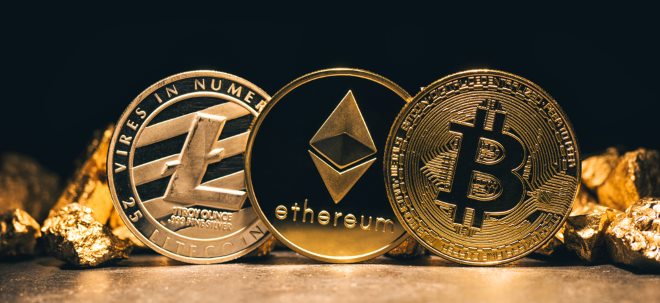China sets internet rules
By James Kynge in Beijing
Published: October 2 2000 17:13GMT | Last Updated: October 3 2000 15:48GMT
The worst fears of many fledgling Chinese internet companies and foreign venture capitalists were realised on Monday with the publication of rules limiting foreign ownership of dotcoms and imposing onerous self-censorship requirements.
The vague content and user restrictions, if enforced, would undoubtedly hamper the development of information technology in China.
Meanwhile the rules applying to foreign investment in China's booming internet sector suggest that a significant shake-up may be in store.
More than $1bn in foreign capital is believed to have been invested in Chinese dotcoms by overseas venture capitalists and many of the world's largest media companies over the past two years.
Internet content providers, the regulations say, must win the approval of the ministry of information industry (MII) before they receive foreign capital, cooperate with foreign businesses or seek stock listings within China or abroad.
Many Chinese dotcoms, often majority-owned by foreigners, have not received MII permission for their infusions of foreign capital.
It may be that the MII, which has long warned that foreign investment in internet content providers is illegal until China joins the World Trade Organisation (WTO), is now preparing to force a shake-up, industry executives said.
Beijing has promised to allow 49 per cent foreign ownership in internet content providers on entry into the WTO, rising to 50 per cent two years after that.
But WTO accession may well be several months away. As part of the new rules, dotcoms have 60 days from October 1 to provide information on their businesses to the MII to secure licences.
"This way of doing things will allow the MII to revoke your business licence if you have already attracted foreign capital," said one foreign executive working in a Chinese internet company.
The long-awaited regulations, which were passed by China's State Council (cabinet) two weeks ago, represent the culmination of several months of debate among Communist authorities on how stringently the internet should be controlled.
Dotcoms are to be held responsible for keeping their sites free of content that subverts state power, harms the "reputation" of China, damages chances of reunification with rival Taiwan, or supports cults, such as the banned Falun Gong, several hundreds of whose members were arrested during a demonstration in Tiananmen Square, Beijing, on Sunday.
In addition, internet content and service providers must keep records of all the content that appears on their websites and all the users who dial on to their servers for 60 days, and hand over the records to the police on demand.
Website proprietors should also censor and report to the authorities any illegal content that is posted.
Industry analysts said, faced with such rules, one of the first considerations of internet content providers would be whether they should move offshore.
Already, many Chinese users of the web do so through proxy servers that allow access to sites blocked by Chinese censors.
asia pacific
--------------------------------------------------
China dotcoms ponder new rules
By James Kynge in Beijing
Published: October 3 2000 15:45GMT | Last Updated: October 3 2000 15:50GMT
Chinese dotcom entrepreneurs put on a brave face on Tuesday over the impact that sweeping new censorship and ownership rules will have on their businesses, but some foreign venture capitalists acknowledged a heightened level of risk.
Shares of China's three most famous portals, Sina.com, Sohu.com and Netease.com, fell in New York on Monday as portfolio investors judged the regulations as inimical to the development of the internet in China. Sina fell 12.4 per cent, Sohu 6.45 per cent and Netease 5.75 per cent.
Executives at Sina and Sohu said, however, that they had anticipated the new rules and were already satisfying them. As part of a complex restructuring that all three companies were obliged to undertake before they listed in the US, the mainland portal company was spun off and is now in Chinese hands. This shields them from one clause in the new rules which stipulates that the proportion of foreign investment in an internet company must conform to "relevant laws". Since there are no laws allowing foreign investment in internet companies before China joins the World Trade Organisation (WTO), industry consultants said foreign ownership was, at best, a grey area and, at worst, forbidden.
It was not clear, however, whether the ministry of information industry (MII) would take action against foreign-invested companies before WTO accession or simply insist that they prepare to meet post-WTO ownership limits.
Under the WTO rules, China has promised to allow foreign companies 49 per cent stakes in internet content providers on accession into the world trade body and 50 per cent stakes two years after joining. China is expected to enter the WTO several months from now.
Most Chinese web sites, apart from those already listed abroad, currently exceed even the WTO limits on foreign ownership and are expected to have to restructure in order to secure a business licence. The MII will be deciding which companies to award business licenses to over the next 56 days.
But no matter how strictly the MII decides to enforce the new ownership restrictions, the new rules on content and censorship is almost sure to crimp the development of the internet in the future. "There is no question that these rule significantly raise the risk of investing in Chinese firms," said one foreign venture capitalist in Beijing.
The rules demand that web sites censor and report any content posted that subverts state power, supports religious cults, harms the reputation of China or damages efforts to reunify with Taiwan, to name a few. Dotcoms that transgress could be closed down.
|


 Thread abonnieren
Thread abonnieren

